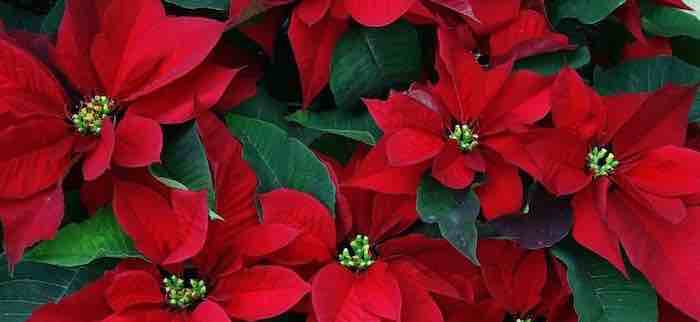
"Strange to see how a good dinner and feasting reconciles everybody" observed Samuel Pepys in his famous diary.
But before indulging in festive activities (or working off earlier ones) there are still a few chores remaining outside. Pull the last persistent weeds from flower beds and borders and cut back any remaining perennials other than ornamental grasses and euphorbias. Prune any dead, dying or diseased growth off shrubs and small trees. Clean bird baths and feeders with a light solution of bleach. If squirrels are a problem raiding feeders, treat the seed with cayenne or chilli pepper powder. Rake any last leaves into the composter. Move empty clay and concrete planters into the garage or shed to prevent wet surfaces flaking and cracking in the cold.
Diversion No. 1
A stunning new mobile home comes complete with a greenhouse, so you can take your garden wherever you go. The 323-square-foot home is sold by the South Carolina firm of Olive Nest Tiny Homes for US$81,500. The greenhouse is on a separate trailer that also includes a pergola with a porch swing. And Christmas is coming!
In municipalities that spread salt to help keep roads and walkways clear over winter, damage can occur to adjacent hedges. Protect by erecting a screen of burlap stapled to 2x2 wood stakes spaced six to eight feet apart. The similar burlap can be wound around upright evergreens in foundation plantings and secured with string to protect against damage from ice storms of very heavy, wet snow.
Diversion No. 2
New Zealander Claire Baker doesn't paint pictures on canvas. Her artwork is her garden. "I call it a type of art. I treat my garden as an art form" she told
The Taranaki Daily News
Keeping our feathered chums fed over winter can pay off the following season when they turn to feasting off many garden pests. However, positioning feeders over lawns can result in destroying the grass below with bird droppings and smothering by seed husks. Scattered, unconsumed food will also attract vermin. If possible, install feeders over patio and deck and clean under them regularly.
Diversion No. 3
Gardening is the best stress buster, reveals
The Mail on Sunday. Forget drugs, gardening is the ultimate stress buster . . . plus yoga and meditation which are proven to boost mental health in a new documentary.
Mix unscented soft soap in a spray bottle and keep handy for spritzing any and all new arriving gift plants to protect any hitchhiking pests. Remove gift wrappings, bows and other gunk beloved by marketing mavens and allow pots to drain properly while admiring the plants themselves.
Diversion No. 4
Is your lawn in need of order? Stop in the name of the lawn! Our Special Mowing Unit is dedicated to strong, healthy, visually appealing lawns. We believe that a lawn is to be enjoyed, plain and simple. Thus, the blurb reads for Fredericton, New Brunswick's Lawn and Order (506-230-1020, lawncrimes.ca).
Special birthday wishes on 1
st December to Bette Midler (born 1945) who worked to restore community gardens in New York City. The same day has been proclaimed as 'Eat a Red Apple Day,' the 12
th December is Poinsettia Day while every Canadian will want to celebrate the 17
th December as Maple Syrup Day.
Could Rudolph the red-nosed
Rangifer tarandus in fact be female? By October or November, males have dropped their antlers, but pregnant cows keep theirs all winter, only shedding theirs in spring. Then both sexes grow a fresh set. True, adolescent males may keep their antlers to around Christmas Eve, so Rudolph may be male--or perhaps a pregnant female. Confusing matters still further, the name 'Rudolph' translates as 'famous wolf.' Suffice to stay that when Robert L. May created the now-famous reindeer with the luminous nose in 1939 none of this fazed him.
 "Strange to see how a good dinner and feasting reconciles everybody" observed Samuel Pepys in his famous diary.
But before indulging in festive activities (or working off earlier ones) there are still a few chores remaining outside. Pull the last persistent weeds from flower beds and borders and cut back any remaining perennials other than ornamental grasses and euphorbias. Prune any dead, dying or diseased growth off shrubs and small trees. Clean bird baths and feeders with a light solution of bleach. If squirrels are a problem raiding feeders, treat the seed with cayenne or chilli pepper powder. Rake any last leaves into the composter. Move empty clay and concrete planters into the garage or shed to prevent wet surfaces flaking and cracking in the cold.
"Strange to see how a good dinner and feasting reconciles everybody" observed Samuel Pepys in his famous diary.
But before indulging in festive activities (or working off earlier ones) there are still a few chores remaining outside. Pull the last persistent weeds from flower beds and borders and cut back any remaining perennials other than ornamental grasses and euphorbias. Prune any dead, dying or diseased growth off shrubs and small trees. Clean bird baths and feeders with a light solution of bleach. If squirrels are a problem raiding feeders, treat the seed with cayenne or chilli pepper powder. Rake any last leaves into the composter. Move empty clay and concrete planters into the garage or shed to prevent wet surfaces flaking and cracking in the cold.